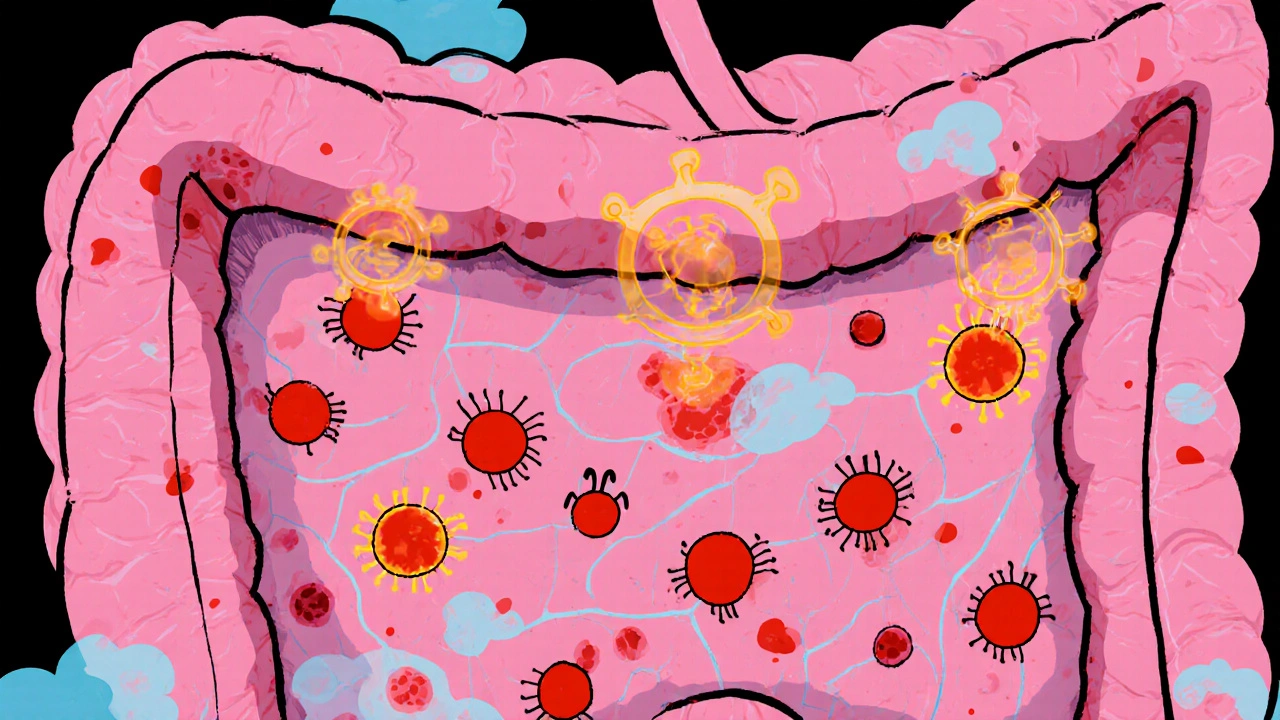UC Treatment: Understanding Options, Medications, and Daily Management
When it comes to UC treatment, the medical approach to managing ulcerative colitis, a chronic inflammatory bowel disease that affects the colon and rectum. Also known as ulcerative colitis management, it’s not just about stopping diarrhea or reducing pain—it’s about calming the immune system’s attack on the gut lining and keeping flare-ups from taking over your life. Unlike temporary stomach bugs, UC doesn’t go away with rest or antacids. It needs ongoing care, and the right treatment plan can mean the difference between feeling normal and being stuck at home.
Most people start with mesalamine, a first-line anti-inflammatory drug that targets the colon directly, often in pill, suppository, or enema form. It’s gentle, widely used, and works well for mild to moderate cases. If that’s not enough, doctors often turn to corticosteroids, stronger drugs like prednisone that shut down inflammation fast but aren’t safe for long-term use due to side effects like weight gain, bone loss, and mood swings. For those who don’t respond to these, biologics, targeted therapies like infliximab or adalimumab that block specific immune proteins driving inflammation. These are injected or infused and can put UC into deep remission—but they come with higher costs and require monitoring for infections.
What’s missing from many treatment discussions is how lifestyle and diet interact with meds. Some people find that avoiding dairy or processed foods helps. Others need to track stress levels—because anxiety doesn’t cause UC, but it can make flares worse. You’re not just taking pills; you’re learning your body’s triggers. The posts below cover real comparisons: how one drug stacks up against another, what side effects actually feel like, and how people manage daily life while on these treatments. You’ll find clear breakdowns of medications like mesalamine vs. biologics, what to watch for when switching drugs, and how to avoid common mistakes that make symptoms worse. This isn’t theory—it’s what works for real people trying to live beyond UC.

